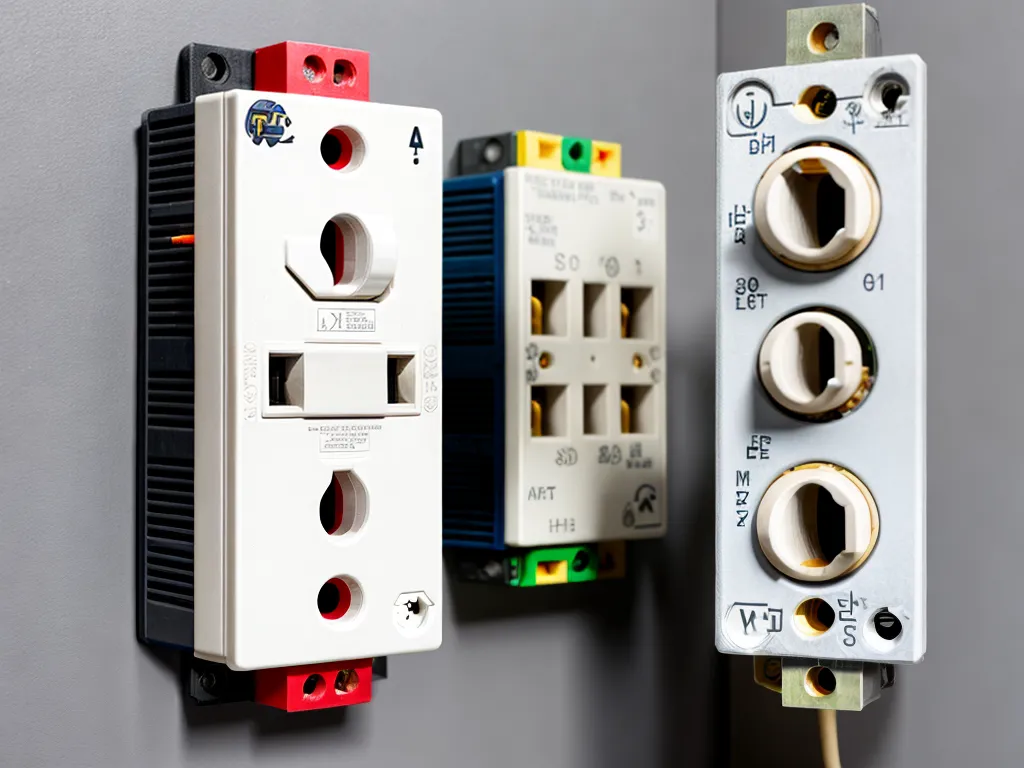
Introduction
Arc fault circuit interrupters (AFCIs) are an important safety device in modern electrical systems, designed to detect dangerous electrical arcs and disconnect power to prevent fires. However, increased sensitivity can lead to more nuisance tripping, disrupting power unexpectedly. This article will examine methods to enhance AFCI performance without increasing false trips.
How AFCIs Detect Arcing
AFCIs monitor the electrical waveform and current levels to identify patterns that indicate arcing, which occurs when electricity jumps a gap between conductors.
- Parallel arcing happens between two wires with different potentials.
- Series arcing occurs in a single wire path.
AFCIs detect irregular waveforms and random high-frequency noise associated with arcing. Enhanced detection algorithms and advanced microprocessors have improved AFCI performance. However, more sensitive settings can also lead to nuisance tripping from normal electrical loads.
Causes of Nuisance Tripping
Anything that distorts the normal sine wave can be misinterpreted by an AFCI as an arc. Some common causes include:
Normal Switching Loads
- Turning on electric motors or compressors
- Dimmer switches
- Transformers like those in doorbells
Electronic Devices
- Variable speed drives
- Light emitting diode (LED) bulbs
- Computers, TVs and game consoles
Loose Connections
- Corroded wires
- Faulty outlets
- Unsecured cables
These types of loads introduce noise or waveform irregularities that can appear similar to arcing signatures.
Strategies to Improve AFCI Performance
Several methods can help make AFCIs more sensitive to actual arcs, while ignoring benign electrical noise:
Advanced Pattern Recognition
- Using sophisticated algorithms and artificial intelligence to better differentiate arcing from normal loads.
- Analyzing factors like amplitude, frequency, repetition, randomness.
- Learning typical electrical noise profiles for the installation.
Multi-Sensor Designs
- Incorporating additional detection methods beyond waveform monitoring.
- Adding carbon monoxide, temperature, and light sensors to confirm dangerous arcs.
- Verifying irregular current flows with multiple current transformers.
Selective Load Discrimination
- Distinguishing known sources of nuisance tripping and selectively disabling AFCI responses.
- Recognizing motor startup currents or on/off switching of problem loads.
- Delaying tripping to avoid normal inrush currents.
Noise Filtering
- Applying filters to smooth out irregular waveforms from problem devices.
- Low-pass filters to remove high frequency noise from loads like LED bulbs.
- Notch filters targeting waveform distortions at specific frequencies.
Implementation Considerations
While these methods show promise for reducing nuisance tripping, certain factors should be considered:
- Cost and complexity of enhanced AFCI designs.
- Impact on tripping time when arcing does occur.
- Difficulty identifying intermittent or changing noise sources.
- Building safety codes may limit selective load discrimination.
With careful testing and application, advanced AFCI technology can help protect against fires without excessive false trips. Continued innovation will further improve effectiveness and reliability.
Conclusion
Arc fault detection is vital for electrical fire prevention, but nuisance tripping undermines AFCI benefits. Using intelligent pattern analysis, multi-sensor verification, load profiling, and noise reduction, AFCIs can become more selective without compromising sensitivity. Advances in this area will help safeguard homes and businesses while avoiding unnecessary power disruptions.